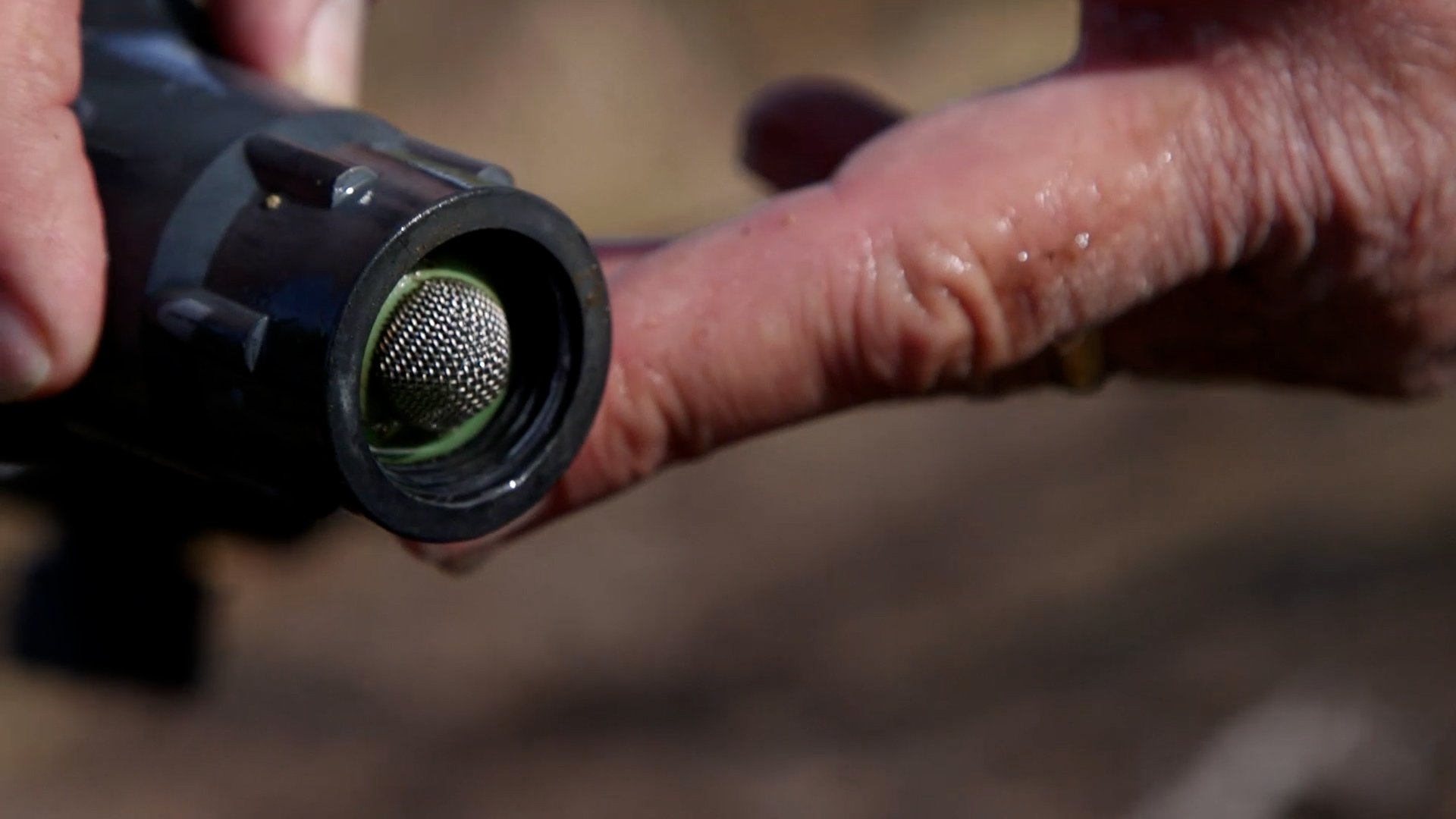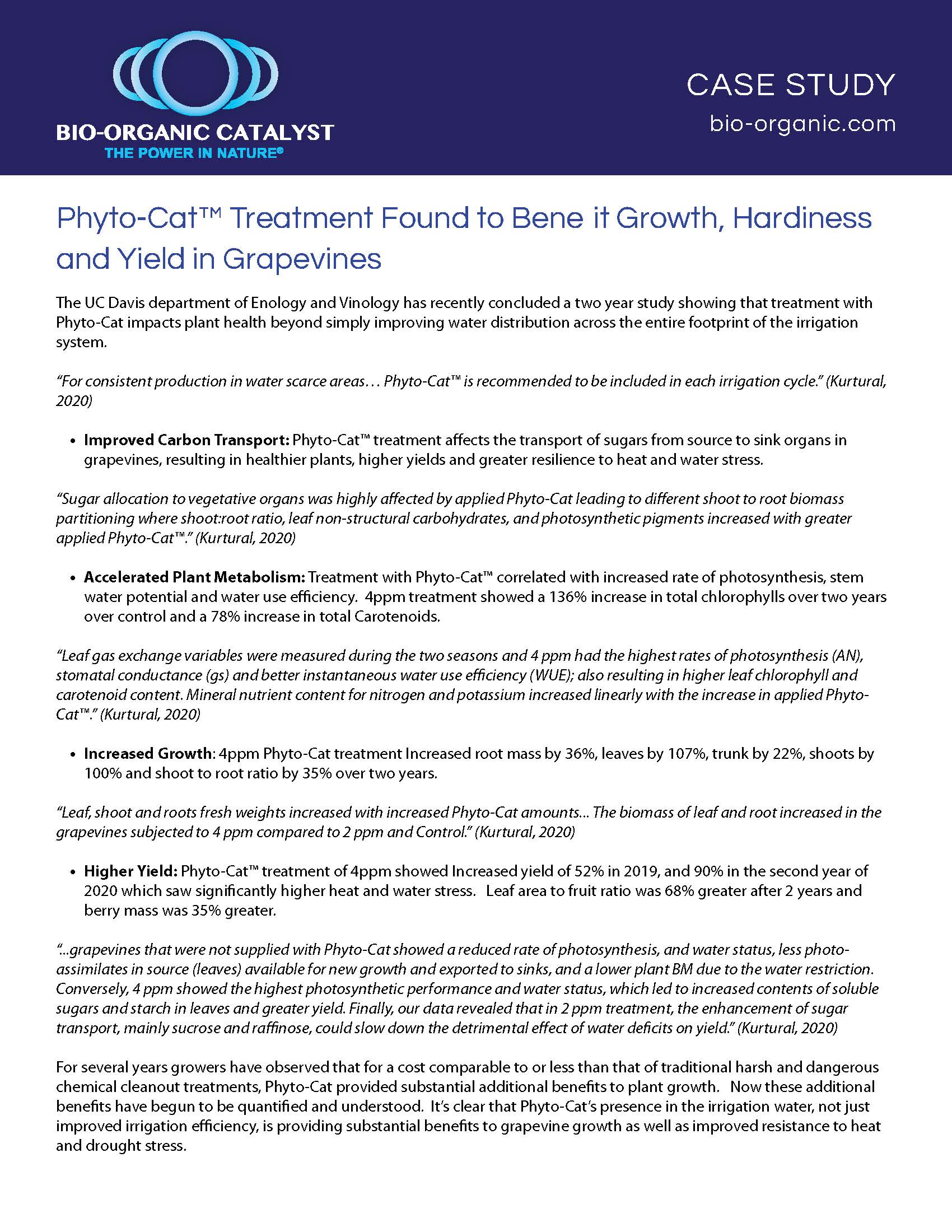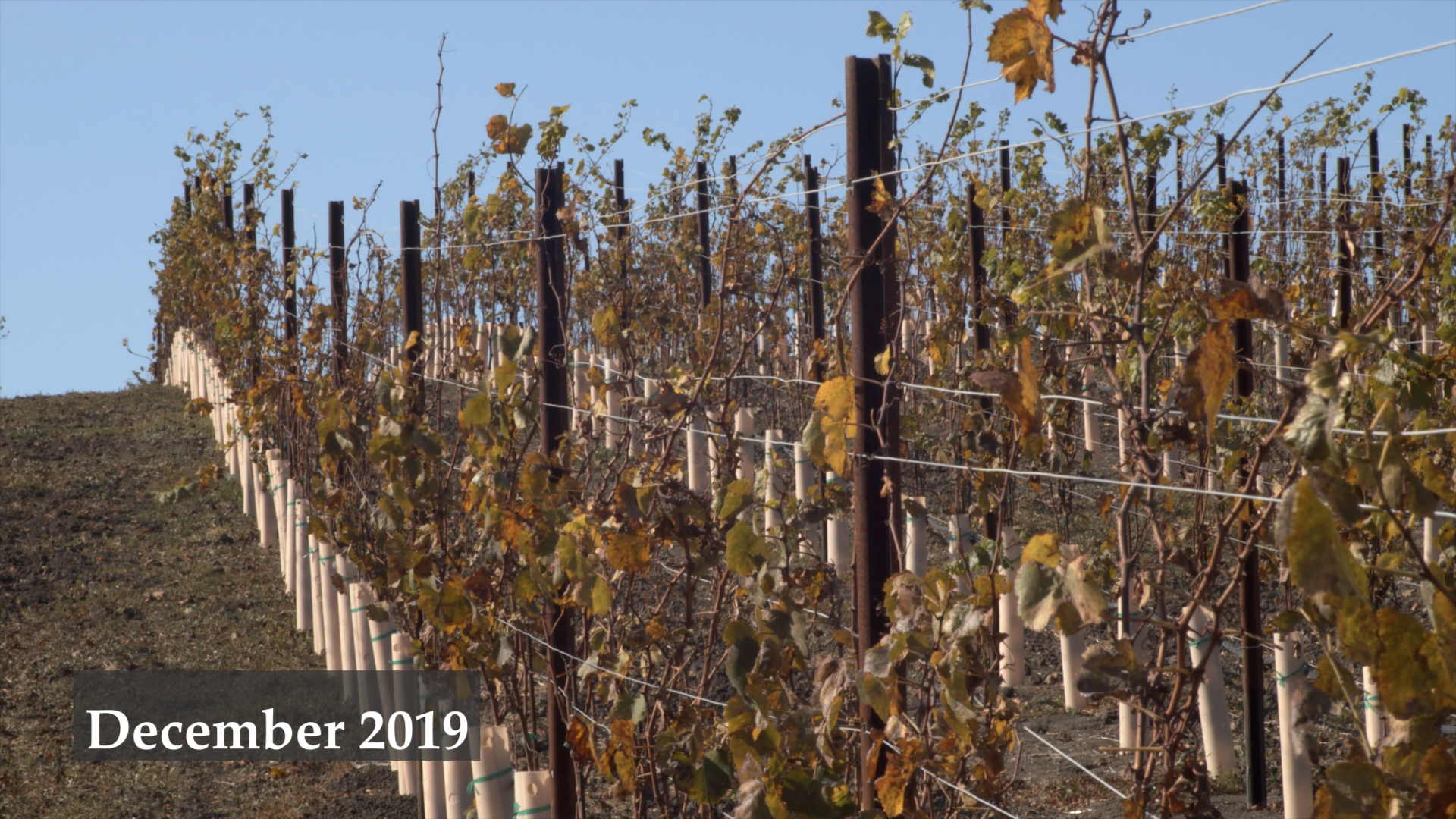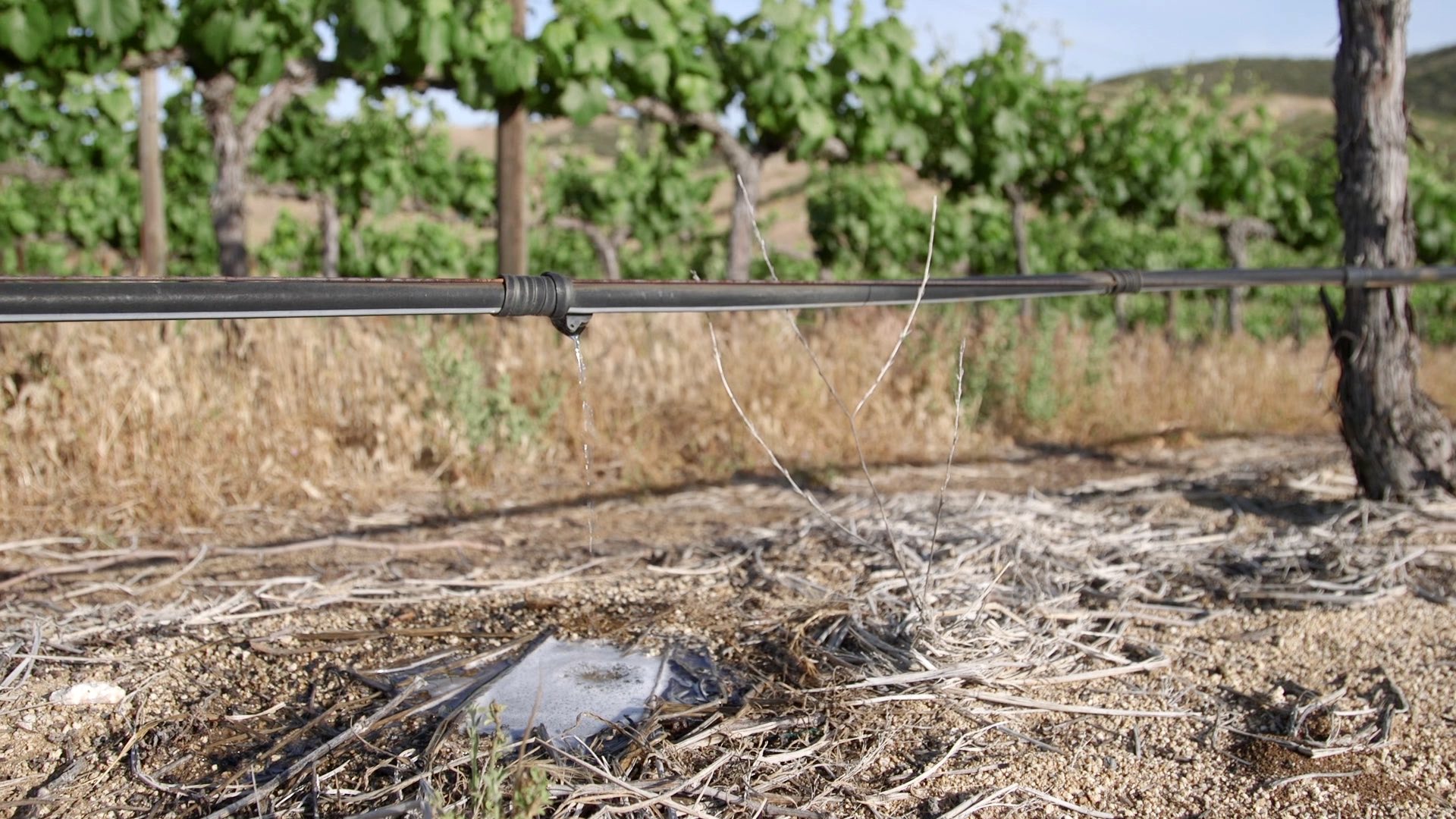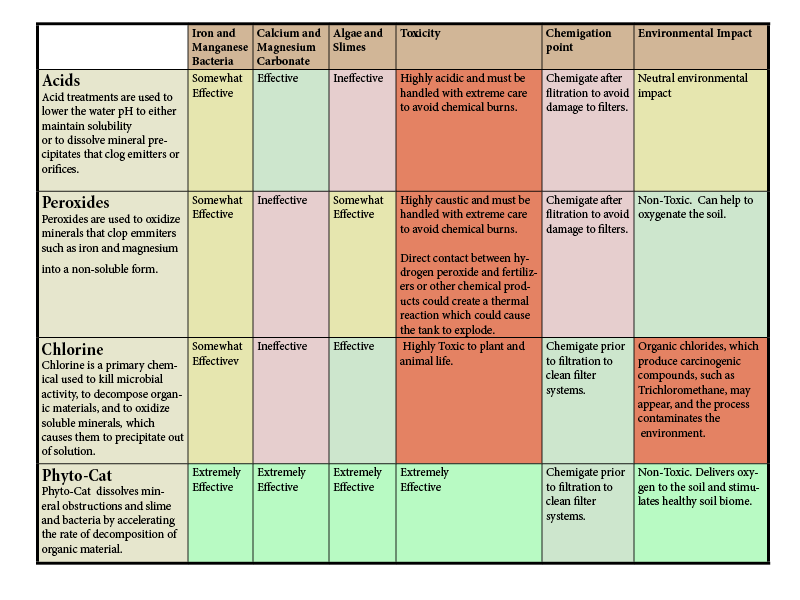To keep irrigation systems running at optimal efficiency and uniformity Its important to understand how they become fouled. Having good filtration and system design can keep grit and other solids out of your irrigation lines but any water available for irrigation will have minerals and biological activity.
| The results of a two year study by Dr. Kaan Kurtural at the UC Davis Department of Enology and Viticulture have been released. This report puts hard data behind what agricultural professionals have been observing for the roughly half a decade that Phyto-Cat has been in use as an irrigation cleaner. Phyto-Cat treatment produces dramatically better overall plant health and water stress resilience in hot, arid climates. The study shows conclusively that hot climate grape vines Phyto-Cat treatment is associated with:
|
|
Wine Grape growers in California are saving water and drastically reduce labor costs by using a new, non-toxic irrigation cleaning treatment. These vineyards are using a ‘bio-catalyst’ called Phyto-Cat, which accelerates gas transfer on a microscopic level to catalyze an immediate decomposition of organic material in water.
Rusty red sediment clogging emitters and filters is a common problem for growers using drip and other types of micro-irrigation.
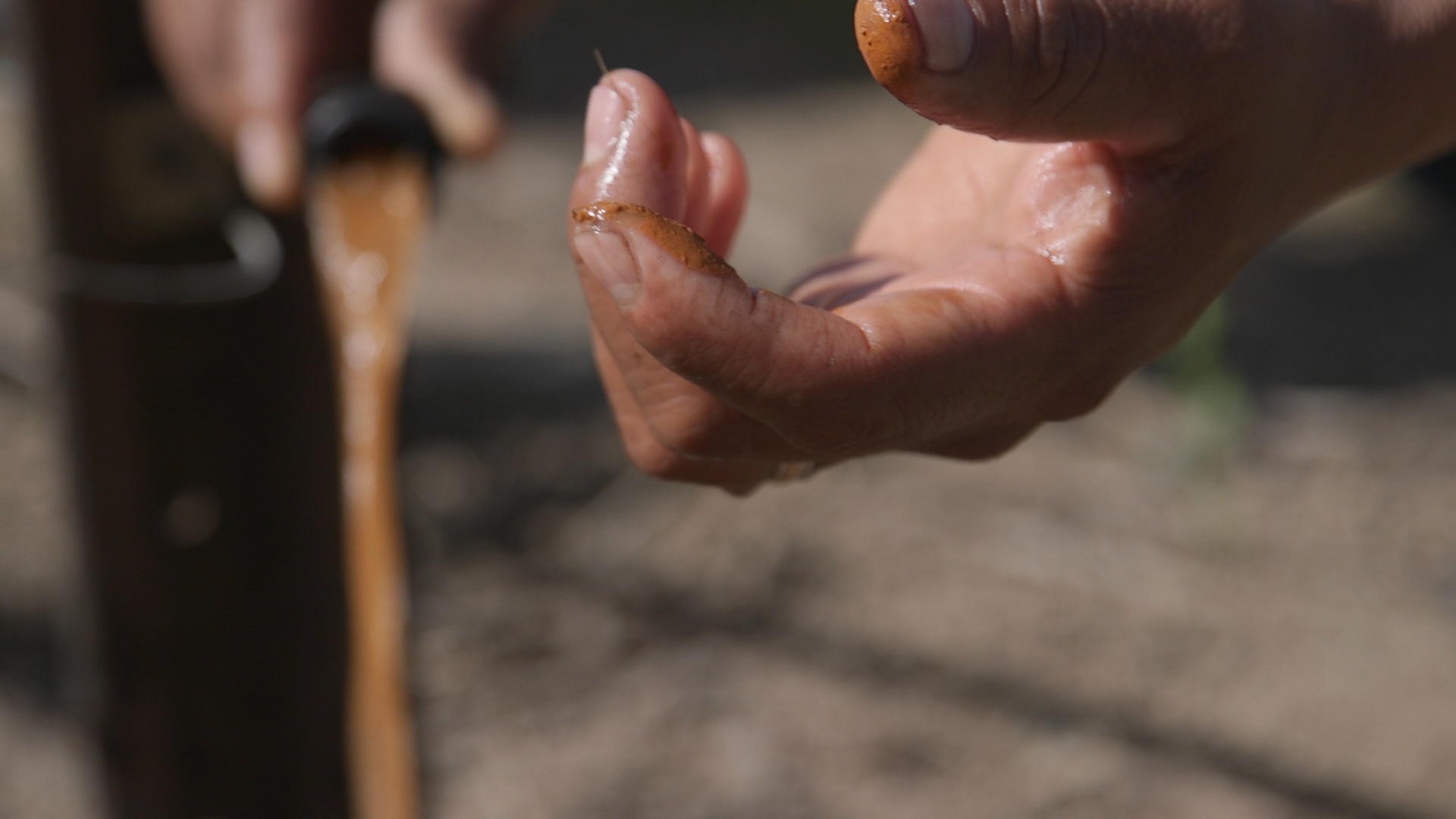
Depending on the quality of the irrigation water most irrigation systems will need to be cleaned using some form of chemical treatment to keep drip emitters dripping. There are several drip irrigation cleaning chemicals available. The types of obstruction that can be effectively cleaned, the method of application and the risks associated with use differ greatly between chemicals. The table below gives an overview of which groups of chemicals can be used for various types of irrigation system clogging issues and the hazards involved in their use.


